
Machine learning has brought great power to humanity by allowing us run tasks in a completely automated manner. It helps improving things that we are involved in our daily lives by studying and using an array of data relevant to the task in hand. ML has a wide series of applications that relates to different fields, from space research to digital marketing.
Machine learning forms the base of artificial intelligence (AI). However, it is still a long way to reach a time when machines will replace humans.
But, if you are interested in learning the science of ML, we have got you the best machine learning books to buy.
Best Machine Learning Books
1. The Hundred-Page Machine Learning Book
Author – Andriy Burkov
Latest Edition – First
Publisher – Andriy Burkov
Format – ebook (Leanpub)/Hardcover/Paperback
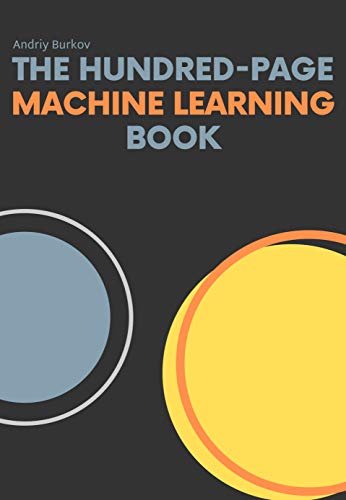
Have you ever thought of buying a book of just 100 pages explaining machine learning? Well, guess you have a chance to buy one! Andriy Burkov’s The Hundred-Page Machine Learning Book is a great effort to help readers understand machine learning. You will find the language to be easy-to-comprehend and it is endorsed by several reputed leaders in the field like Peter Norvig, the Director of Research at Google and Sujeet Varakhedi, the Head of Engineering at eBay.
After reading the book thoroughly, you can build and appreciate complex artificial intelligence systems, clear and ML-based interviews and also start your ML-based business of your own. However, you must have the basic knowledge of ML before buying this book.
Topics it covers
- Anatomy of a learning algorithm
- Neural networks and deep learning
- Fundamental algorithms
- Supervised learning and unsupervised learning
- Other forms of learning
2. Programming Collective Intelligence: Building Smart Web 2.0 Applications
Author – Toby Segaran
Latest Edition – First
Publisher – O’Reilly Media
Format – Kindle/Paperback
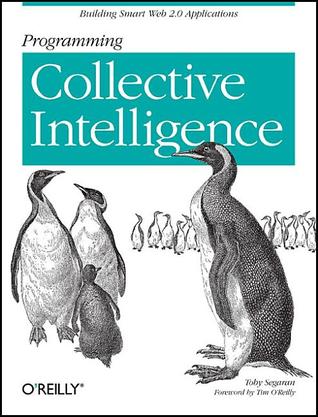
The next name for you to find the best machine learning books Toby Segaran’s programming Collective Intelligence. You can buy this book to start with your first lessons on machine learning. It was written in 2007, when machine learning and data science were rising to reach their present status. It involves great use of Python to deliver important knowledge to the newbie readers in the field.
The Programming Collective Intelligence is more like a guide to implementing machine learning than an introduction to ML. It details on developing efficient ML algorithms for collecting data from apps, creating programs to access data from websites and infer the collected data. All the chapters have got exercises to extend the stated algorithm and improve effectiveness and efficacy.
Topics it covers
- Non-negative matrix factorization
- Collaborative filtering techniques
- Support vector machines
- Bayesian filtering
- Methods for detecting groups or patterns
- Evolving intelligence for problem-solving
- Search engine algorithms
- Ways to make predictions
3. Machine Learning
Author – Tom M. Mitchell
Latest Edition – First
Publisher – McGraw Hill Education
Format – Paperback

Good news for beginners in machine learning out there! This book, ‘Machine Learning by Tom M. Mitchell’ is a perfect fit for you. It provides an amazing overview of machine learning theorems along with pseudocode summaries of the respective algorithms. The ML book is replete with case studies and examples to help you learn and grasp machine learning algorithms easily.
So, if you are looking forward to building a career in machine learning and want to get the basic idea about the subject, this one is your ideal pick. A detailed explanation of machine learning basics and project-based assignments makes it a great fit to be included in an ML program or course.
Topics it covers
- Genetic algorithms
- Machine learning concepts and techniques
- Inductive logic programming
- Introduction to primary approaches to machine learning
- Re-enforcement learning
4. The Elements of Statistical Learning: Data Mining, Inference, and Prediction
Author – Trevor Hastie, Robert Tibshirani, and Jerome Friedman
Latest Edition – Second
Publisher – Springer
Format – Hardcover/Kindle
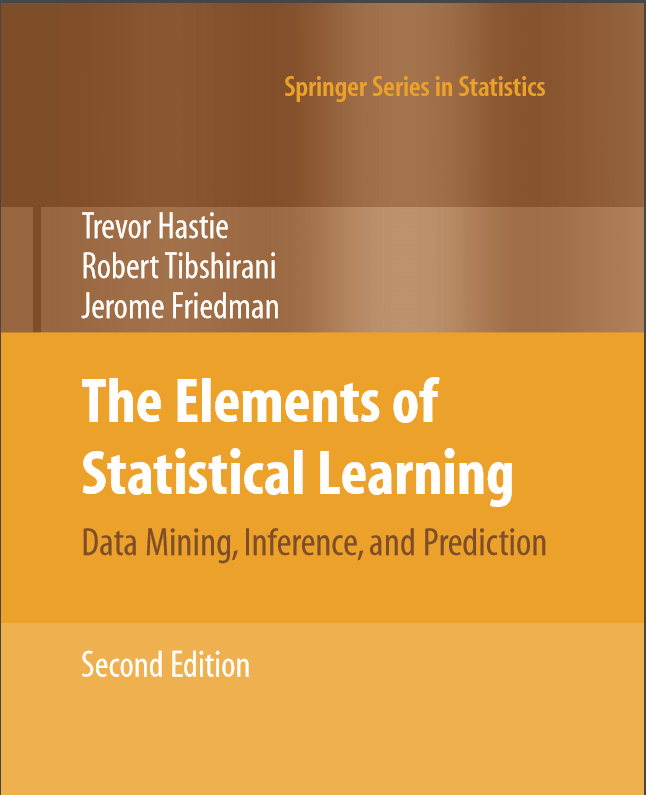
If you have an interest in statistics and wish to learn machine learning from a perspective of statistics, The Elements if Statistics Learning should be your pick. This is a machine learning book that focuses on mathematical derivations for explaining the underlying logic of a machine learning algorithm. However, before you pick the book, make sure you have got the basic knowledge of linear algebra.
You must know that being a beginner and trying to understand the concepts defined in The Elements of Statistical Learning is not an easy job. So, you might find it complex if you belong to the category of beginners. However, there’s no harm to give it a try, especially if you have a friend to mentor you.
Topics it covers
- Ensemble learning
- Model inference and averaging
- High-dimensional problems
- Linear methods for classification and regression
- Random forests
- Neural networks
- Supervised and unsupervised learning
5. Learning from Data: A Short Course
Author – Yaser Abu Mostafa, Malik Magdon-Ismail, and Hsuan-Tien Lin
Latest Edition – First
Publisher – AMLBook
Format – Hardcover/Kindle
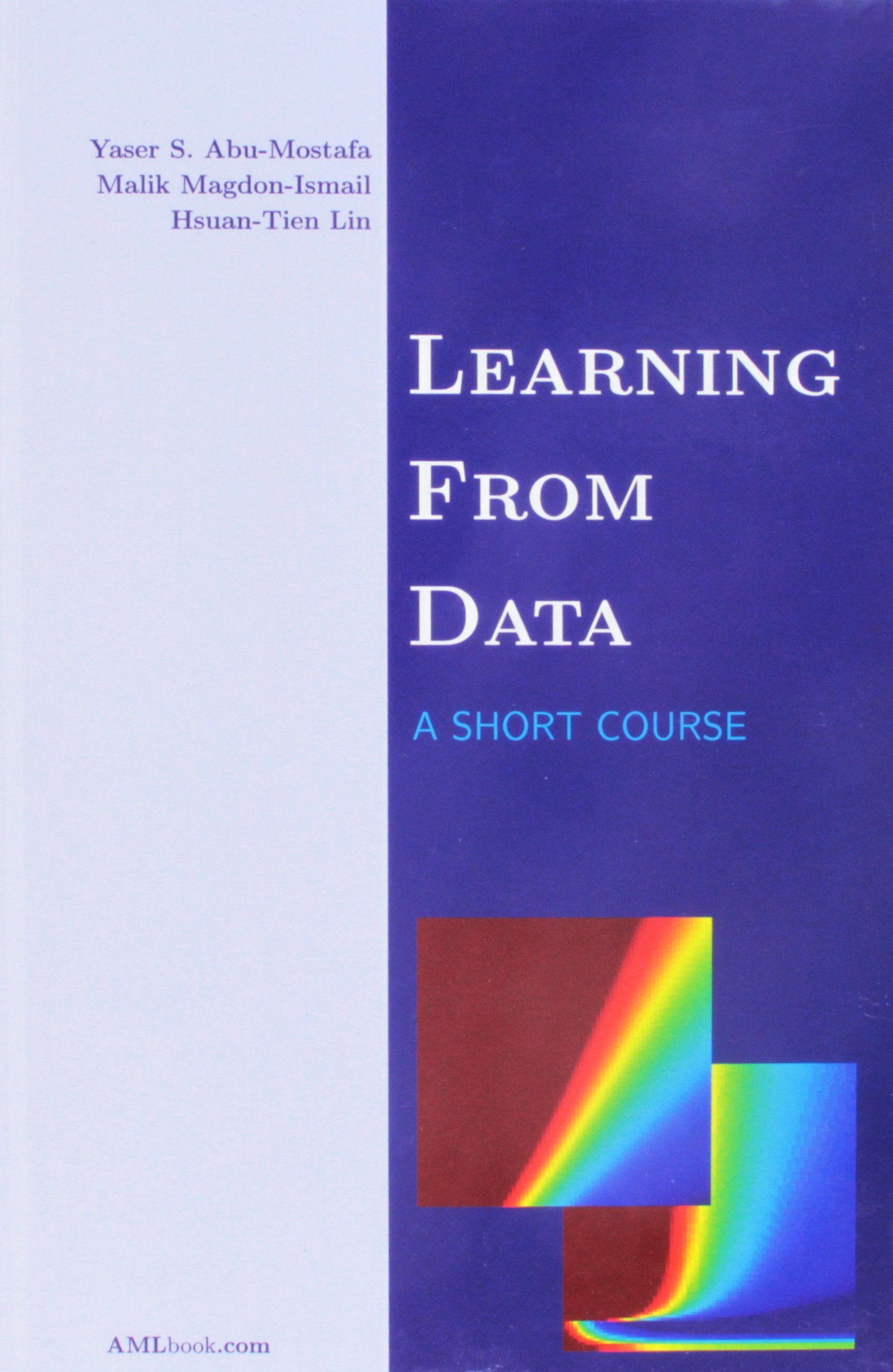
Are you looking forward to having a comprehensive introduction to machine learning in lesser time? Have you got a decent understanding of engineering mathematics? If so, you can buy the book, “Learning from Data: A Short Coursebook.” Instead of focusing on imparting knowledge about different advanced concepts relevant to machine learning, you will find the book helps you prepare to understand the complex concepts of machine learning.
You will not find those beating around the bush and lengthy explanations, rather receive to-the-point explanations in the “Learning from data: A Short Coursebook.”
Topics it covers
- Validation
- Error and Noise
- Support vector machines
- Radial basis functions
- Kernel methods
- Overfitting
- Regularization
6. Machine Learning for Hackers: Case Studies and Algorithms to Get you Started
Author – Drew Conway and John Myles White
Latest Edition – First
Publisher – O’Reilly Media
Format – Kindle/Paperback
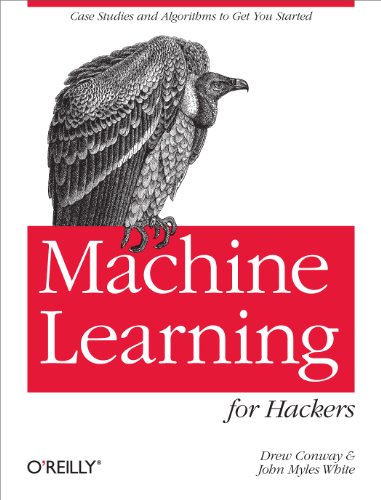
The next on the list of the best machine learning books is The Machine Learning for Hackers. It is suitable for an experienced and skilled programmer who is interested in crunching data. The word hackers is in relation to the adroit mathematicians. As a large part of the book is based on data analysis in R, it is an effective pick for people having a decent knowledge of R as well. To explain data wrangling, the book uses advanced R.
One of the most significant highlights of this book is it including apposite case studies that show the importance of machine learning algorithms, It doesn’t dig deeper into the mathematical theory of ML, but explains the several real-life examples to help the readers learn machine learning faster and easier.
Topics it covers
- Optimization techniques
- Developing a naïve Bayesian classifier
- Linear regression
- Using R for querying data
7. Pattern Recognition and Machine Learning
Author – Christopher M. Bishop
Latest Edition – Second
Publisher – Springer
Format – Hardcover/Kindle/Paperback
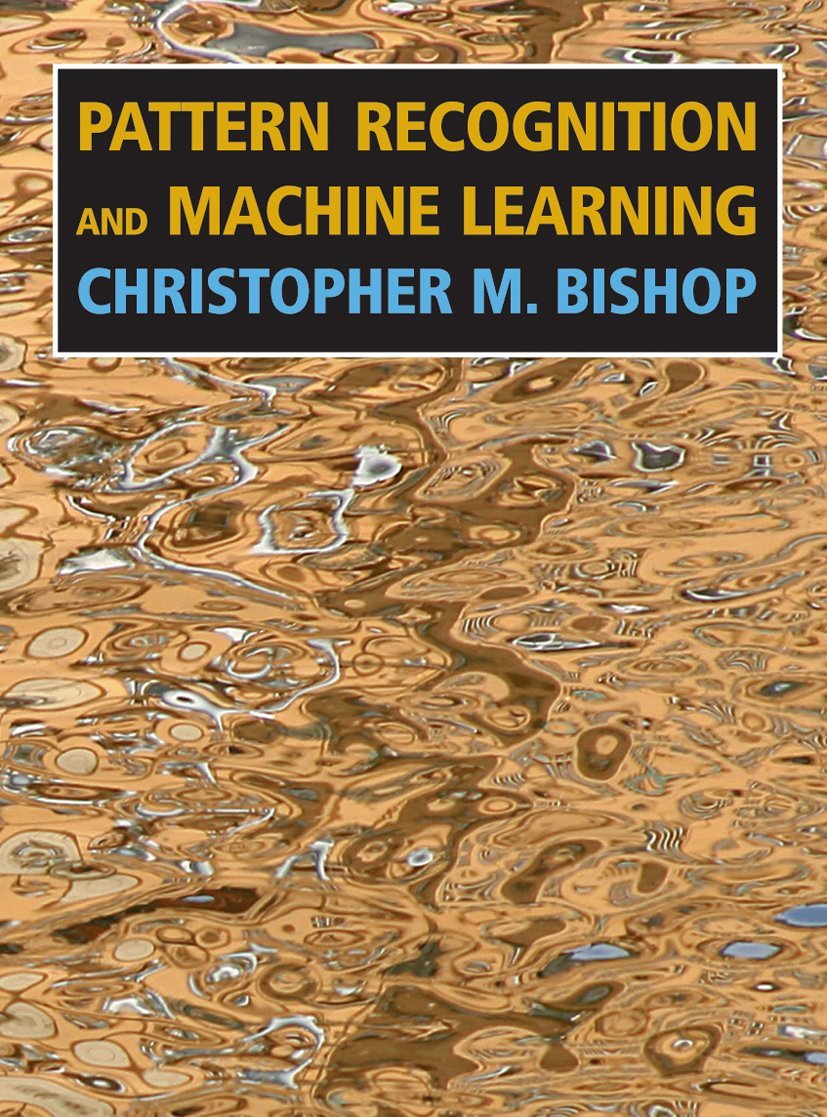
Pattern Recognition and Machine Learning, written by Christopher M. Bishop is an ultimate reference for understanding and using statistical techniques in ML and pattern recognition. A complete understanding of multivariate calculus and linear algebra are the prerequisites for reading this machine learning book.
In the Pattern Recognition and Machine Learning book, you will find detailed practice assignments to offer a comprehensive introduction to the statistical pattern recognition techniques. You will find graphic models in the models in an exceptional way of explaining probability distributions.
Topics it covers
- Introduction to basic probability theory
- Approximate inference algorithms
- Bayesian methods
- Introduction to pattern recognition and machine learning
- New models based on kernels
8. Natural Language Processing with Python
Author – Steven Bird, Ewan Klein, and Edward Loper
Latest Edition – First
Publisher – O’Reilly Media
Format – Available
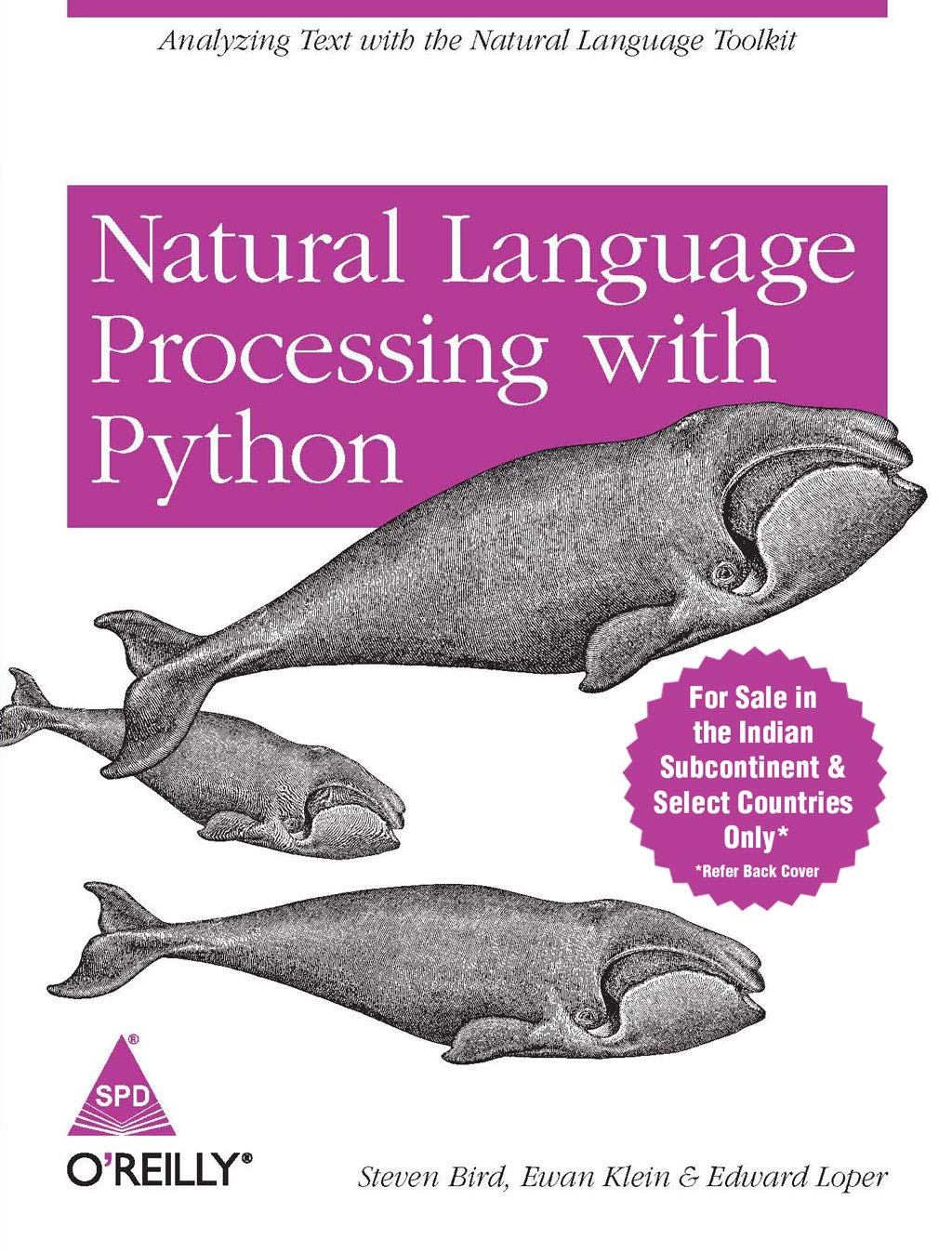
The next on the list of best machine learning books is Natural Language Processing with Python. If you even have a little idea about machine learning, you must know that NLP (Natural Language Processing) is considered the mains of machine learning. This book uses the programming language, Python to guide you into using NLTK. NLTK is the popular suite of Python libraries and programs for statistical and symbolic natural language processing for English.
The ‘Natural Language Processing with Python’ uses the appealing Python codes to demonstrate NLP in a precise, yet clear manner. You will be able to access well-annotated datasets to analyze and deal with a linguistic structure in text, well-organized data and various other NLP-based aspects.
Topics it covers
- How human language works
- Linguistic data structures
- Parsing and semantic analysis
- Integrate techniques from linguistics and AI
- Natural Language Toolkit (NLTK)
- Popular linguistic databases
9. Bayesian Reasoning and Machine Learning
Author – David Barber
Latest Edition – First
Publisher – Cambridge University Press
Format – Hardcover/Kindle/Paperback
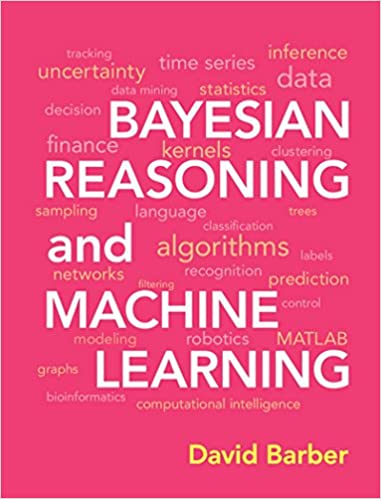
If you want to enter the field of machine learning, David Barber’s Bayesian Reasoning and Machine Learning if your best pick from the list of best machine learning books. It is a fitting solution for computer scientists who are interested to learn machine learning but lack the background in linear algebra and calculus.
In the Bayesian Reasoning and Machine Learning, there is no scarcity of detailed explanations with examples and exercises. So, you can say the book is perfect for both undergraduate and graduate students of computer science. The machine learning book has also got a comprehensive software package and additional online references having demos and teaching materials for the instructors.
Topics it covers
- Approximate interference
- Naive Bayes algorithm
- Learning in probabilistic models
- Dynamic models
- The framework of graphical models
- Probabilistic reasoning
10. Understanding Machine Learning
Author – Shai Shalev-Shwartz and Shai Ben-David
Latest Edition – First
Publisher – Cambridge University Press
Format – Hardcover/Kindle/Paperback
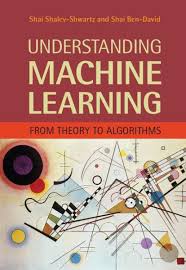
The next is ‘Understanding Machine Learning’ that offers its readers an organized and well-structured introduction to machine learning. The book teaches the fundamental theories and algorithmic paradigms of ML and mathematical derivations.
As we know how machine learning brings up abroad series of topics in an easy-to-comprehend way, this book is perfect for anyone. No matter if you are a non-expert reader in mathematics, engineering, statistics and computer science, or a computer science student, Understanding machine Learning is a book for everyone.
Topics it covers
- The computational complexity of learning
- Stochastic gradient descent
- PAC-Bayes approach
- Convexity and stability
- Neural networks
- ML algorithms
- Structured output learning
11. Machine Learning for Absolute Beginners: A Plain English Introduction
Author – Oliver Theobald
Latest Edition – Second
Publisher – Scatterplot Press
Format – Kindle/Paperback
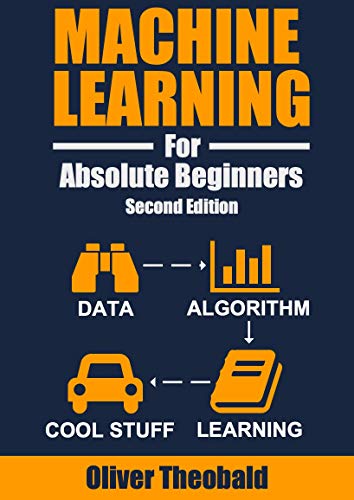
So, you don’t have any prior exposure or experience of machine learning but want to know about it. If that is the case, you must buy the “Machine Learning for Absolute Beginners” by Oliver Theobald. The best part of reading this book is that you don’t require to know anything about coding or have a mathematical background to read it.
This is a helpful book for anyone who is looking forward to knowing a perfect definition of machine learning and its concepts. If you are one such person, this book is can be your best choice. You will also find clear examples and explanations of various ML algorithms.
Topics it covers
- Basics of neural networks
- Data scrubbing techniques
- Feature engineering
- Clustering
- Cross-validation
- Ensemble modeling
- Regression analysis
12. Machine Learning for Dummies
Author – John Paul Mueller and Luca Massaron
Latest Edition – First
Publisher – For Dummies
Format – Kindle/Paperback
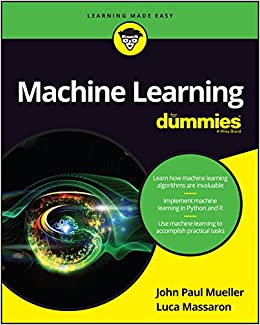
Machine Learning for Dummies is a book that focuses on making the readers familiar with the basic theories and concepts of machine learning in the easiest way possible. The book stresses real-world, practical applications of machine learning.
This ML book written by Luca Massaron and John Paul Mueller uses R code and Python to demonstrate how you can train machines for finding patterns and analyze the results. The book also shows how ML facilitates fraud detection, email filters, web searches, internet ads, etc.
Topics it covers
- Data preparation
- Machine learning techniques
- Tying machine learning methods to outcomes
- The machine learning cycle
- Supervised and unsupervised learning
- Training machine learning systems
13. Fundamentals of Machine Learning for Predictive Data Analytics: Algorithms, Worked Examples, and Case Studies
Author – John D. Kelleher, Brian Mac Namee, and Aoife D’Arcy
Latest Edition – First
Publisher – The MIT Press
Format – Hardcover/Kindle
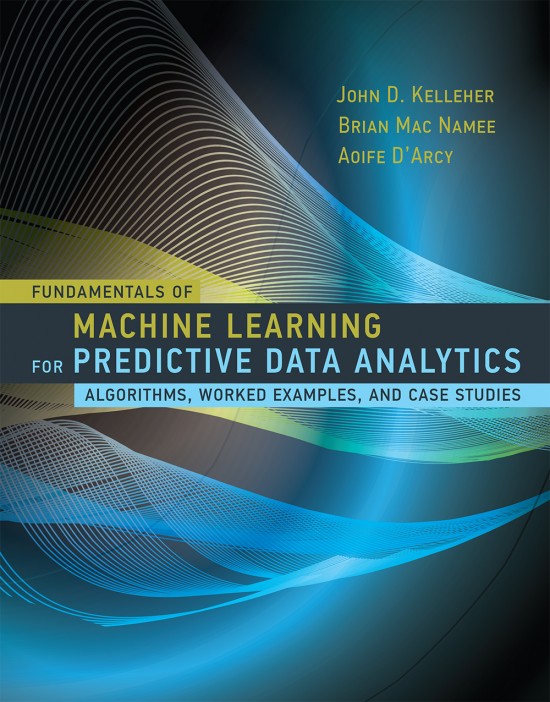
Predictive analytics involves using a series of statistical techniques that support in analyzing the past and current events in order to make future predictions based on the same events. This book, “Fundamentals of Machine Learning for Predictive Data Analytics” talks about the basics of machine learning that are needed to perform predictive data analytics.
Yes, you will definitely need a good understanding of the basics of predictive data analytics before buying a book and getting the most out of it. Each ML concepts explained in the book is supported by suitable algorithms, well-structured examples and models.
Topics it covers
- Error-based learning
- Techniques for evaluating prediction models
- Probability-based learning
- Information-based learning
- Similarity-based learning
14. Machine Learning with TensorFlow
Author – Nishant Shukla
Latest Edition – First
Publisher – Manning Publications
Format – ebook (free)/Paperback
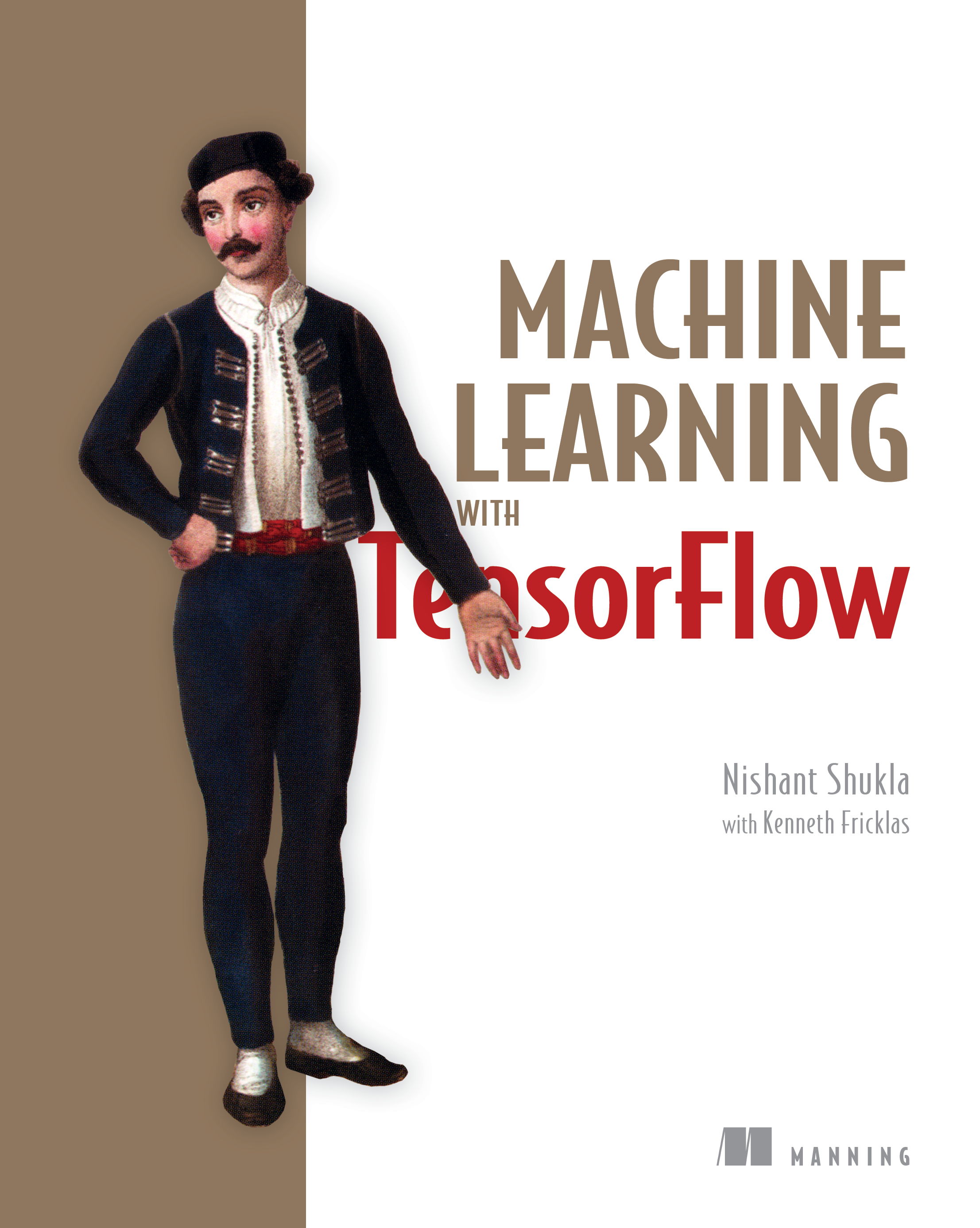
TensorFlow is among the top data science Python libraries and a symbolic math library, which is used for machine learning applications, especially the neural networks. The book “Machine Learning with TensorFlow” offers the readers a robust explanation of the concepts of machine learning and practical coding experience.
The book explains the basics of machine learning with conventional classification, clustering and prediction algorithms. It talks about the deep learning concepts helping the readers to get ready for any type of machine learning job with the help of free and open-source TensorFlow library.
Topics it covers
- Autoencoders
- Deep learning
- Convolutional, recurrent, reinforcement neural networks
- Hidden Markov models
- Linear regression
- Reinforcement learning
15. Machine Learning in Action
Author – Peter Harrington
Latest Edition – First
Publisher – Manning Publications
Format – Paperback
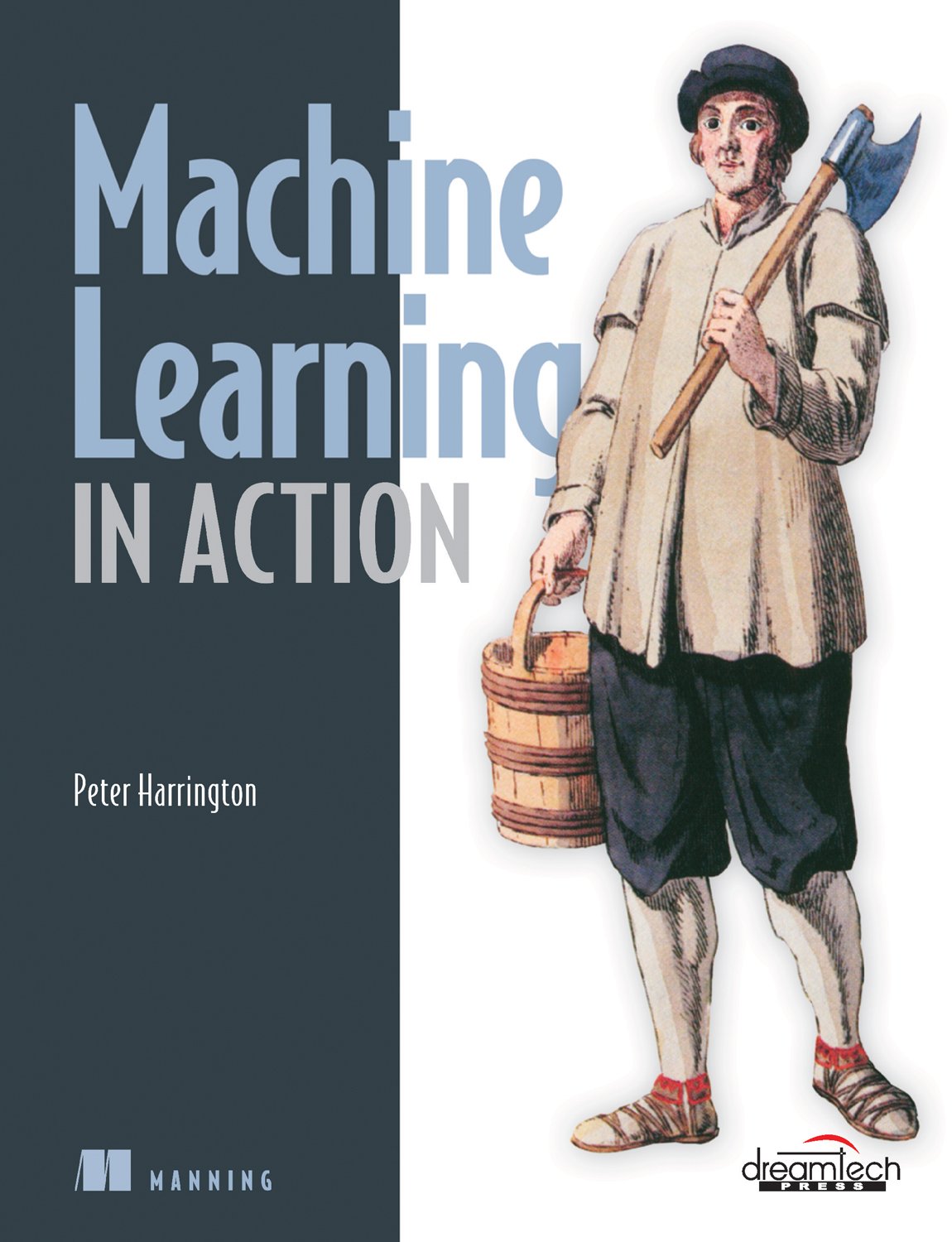
Another perfect pick among the best machine learning books list is ‘Machine Learning in Action’. It is a book suitable for almost everyone who is interested to learn about machine learning. From undergraduates to ML experts, this book is helpful to everyone, It contains the details of machine learning techniques and also the underlying concepts in a well-explained way.
It is no less than a walkthrough for developers who want to write their own programs to acquire data with the goal of the analysis. This book discusses the ML algorithms that form the basis of several machine learning techniques in detail. Most examples in the book use Python for a better explanation.
Topics it covers
- Basics of machine learning
- FP-growth
- Big Data and MapReduce
- Logistic regression
- K-means clustering
- Support vector machines
- Tree-based regression
16. Data Mining: Practical Machine Learning Tools and Techniques
Author – Ian H. Witten, Eibe Frank, and Mark A. Hall
Latest Edition – Fourth
Publisher – Morgan Kaufmann
Format – Kindle/Paperback
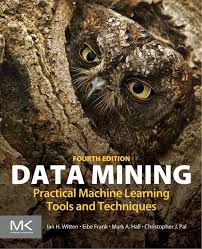
Data mining techniques help readers to know the patterns in large data sets by using methods pertaining to the fields of database systems, statistics and machine learning. If you want to learn data mining techniques (in particular) and machine learning (in general), you should buy the book, “Data Mining: Practical Machine Learning Tools and Techniques.”
It is one of the best machine learning books that focuses more on the technical aspect of machine learning. It digs deeper into the methods for obtaining data, technical details of machine learning and uses different inputs and outputs to evaluate results.
Topics it covers
- Clustering
- Comparing data mining methods
- Instance-based learning
- Predicting performance
- Linear models
- Knowledge representation & clusters
- Statistical modeling
- Traditional and modern data mining techniques
17. Machine Learning: A Probabilistic Perspective (Adaptive Computation and Machine Learning series)
Author – Kevin P. Murphy
Latest Edition – First
Publisher – The MIT Press
Format – eTextbook/Hardcover
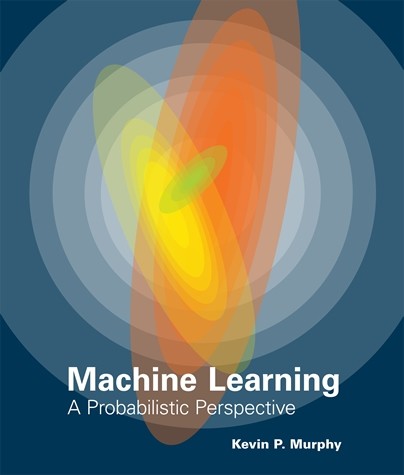
Next in the list is the “Machine Learning: A Probabilistic Perspective” is full of informal writing and pseudocode for significant algorithms. It is a fun ML book that showcases nostalgic color images and real-world, practical examples that belong to several domains like computer vision, biology, text processing and robotics.
The book focuses on a principled model-based approach. It uses graphical models to specify machine learning models in an intuitive and concise way.
Topics it covers
- Conditional random fields
- Deep learning
- Optimization
- L1 regularization
- Probability
18. Hands-On Machine Learning with Scikit-Learn, Keras, and TensorFlow: Concepts, Tools, and Techniques to Build Intelligent Systems
Author – Aurélien Géron
Latest Edition – Second
Publisher – O’Reilly Media
Format – Kindle/Paperback
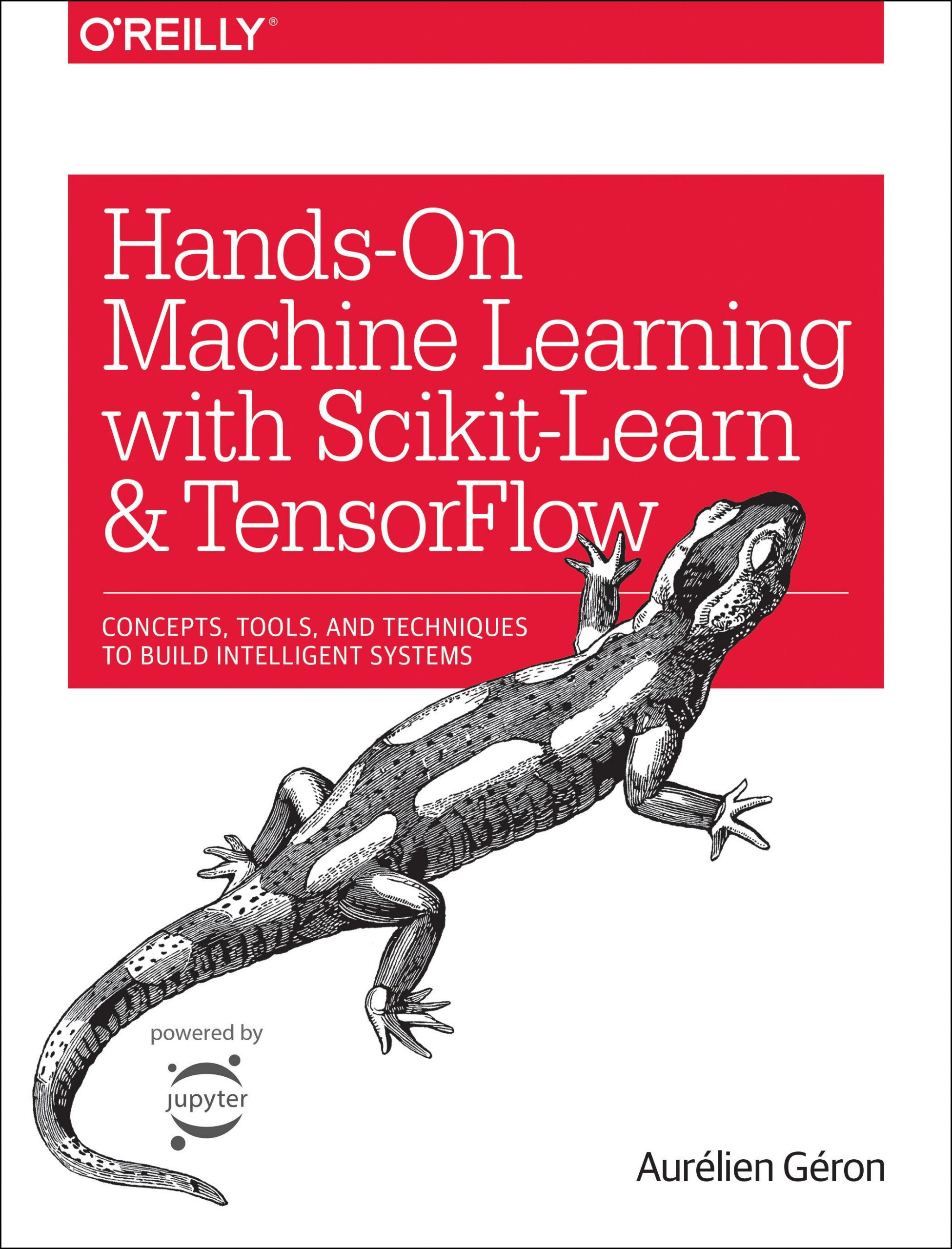
The Hands-On Machine Learning with Scikit Learn and TensorFlow is a book with Keras on its content list, along with TensorFlow and Scikit Learn. The machine learning book offers an intuitive understanding of the different tools and concepts that you need to understand and develop smart intelligent systems.
To get started with the book, you must have a programming experience as it deals with the Python libraries. Each chapter in this ML book has got multiple exercises that will help you to apply everything you have learned by then. After having a proper reading of the book, you will be able to implement intelligent programs from the data you gain.
Topics it covers
- Deep neural networks
- Deep reinforcement learning
- Linear regression
- Training neural nets
- Training models, including decision trees, ensemble methods, random forests, and support vector machines
19. Introduction to Machine Learning with Python: A Guide for Data Scientists
Author – Andreas C. Müller & Sarah Guido
Latest Edition – First
Publisher – O’Reilly Media
Format – Kindle/Paperback
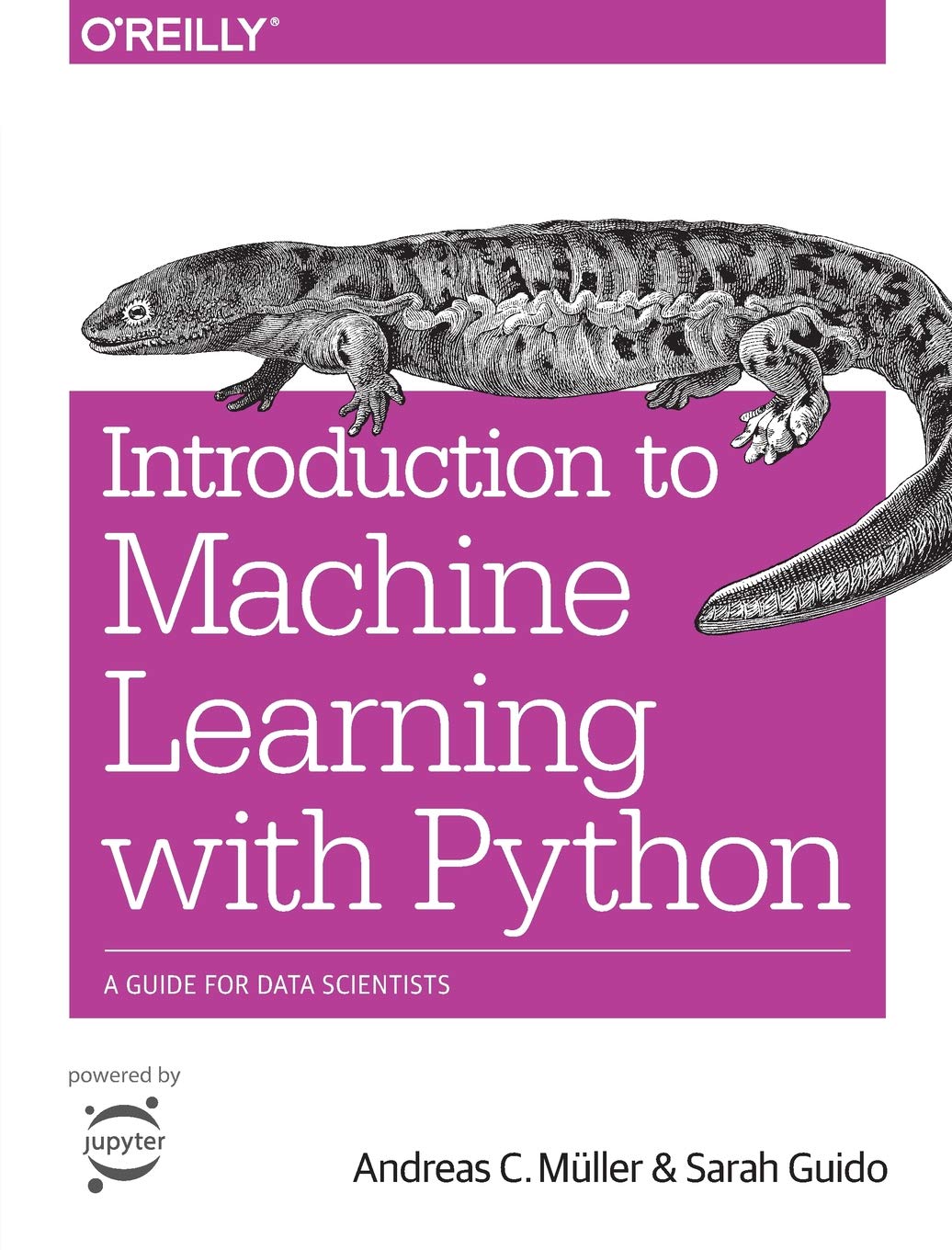
Are you a data scientist with good knowledge of using Python? Are you interested to learn machine learning? If so, you should get the “Introduction to Machine Learning with Python: A Guide for Data Scientists.” It is an ideal pick to get started with your machine learning journey. The book will teach you the different practical ways of building your machine learning solutions.
You will also learn the significant steps to develop robust machine learning applications using Scikit and Python library. If you have a good understanding of NumPy and matplotlib libraries, it will be of great help.
Topics it covers
- Advanced methods for model evaluation and parameter tuning
- Machine learning algorithms
- Pipelines for chaining models and encapsulating workflow
- Methods for working with text data
- Applications, fundamental concepts of machine learning
- Representation of processed data
20. Python Machine Learning: A Technical Approach to Machine Learning for Beginners
Author – Leonard Eddison
Latest Edition – First
Publisher – CreateSpace Independent Publishing Platform
Format – Audiobook/Paperback
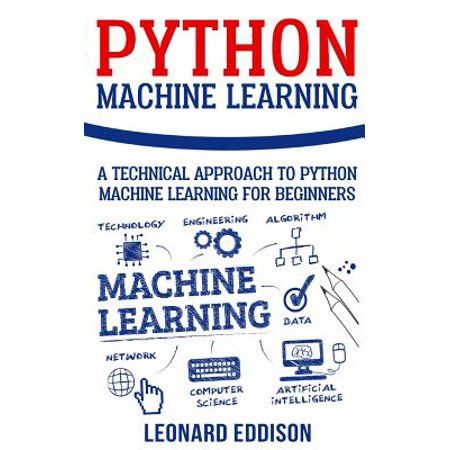
The last in the list is the “Python Machine Learning” book, which is a beginner-friendly machine learning book. It gives all the details about the basics of machine learning as well as its importance and wide range of applications.
The book also provides all the significant details on the fundamental of Python programming and how you can get started with the open-source and free programming language. Once you get done with reading the book, you can conveniently code in Python and establish a broad range of machine learning tasks successfully.
Topics it covers
- Basics of artificial intelligence
- Fundamentals of the Python programming language
- Decision trees
- Deep neural networks
- Logistic regression
Conclusion
So, this was our list of the best machine learning books curated for you. Through the deep learning of these books, you can get an idea of basic and advance machine learning aspects. You can learn the subject in the way you desire to, as you know which book would serve your purpose the best. Machine learning is a trending career option today, delay no more and choose your path to success by picking the most suitable option for you.

